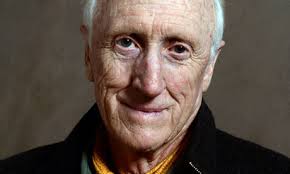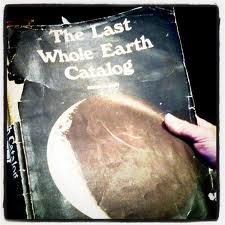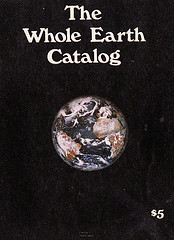IEEE Talk: Integrated Big Data, The Cloud, & Smart Mobile: Actually One Big Thing
by David Mayes
This IEEE Talk discusses the three biggest trends in online technology and proposes that in fact, they represent one huge integrated trend that is already having a major impact on the way we live, work and think. The 2012 Obama Campaign’s Dashboard mobile application, integrating Big Data, The Cloud, and Smart Mobile is perhaps the most significant example of this trend, combining all three technologies into one big thing. A major shakeout and industry consolidation seems inevitable. Additional developments as diverse as augmented reality, the Internet of Things, Smart Grid, near field communication, mobile payment processing, and location-based services are also considered as linked to this overall trend.
IEEE Talk: Integrated Big Data, The Cloud, & Smart Mobile: Big Deal or Not? Presentation Transcript
- 1. Big Data, The Cloud, & Smart Mobile: Integrated Big Deal or Not? ©David Mayes 1
- 2. IEEE: UBC Okanagan Wednesday, February 6th, 2013 ©David Mayes 2
- 3. Speaker Introduction IEEE UBC Okanagan Big Data, The Cloud, and Smart Mobile: Big Deal or Not? ©David Mayes 3
- 4. David Mayes: LinkedIn Profile: http://www.linkedin.com/in/mayo615 Personal Blog: http://mayo615.com UBC Office: EME 4151 (250) 807-9821 / Hours by appt. Email: david.mayes@ubc.ca mayo0615@gmail.com Mobile: (250) 864-9552 Twitter: @mayo615 Experience: Executive management, access to venture capital, International business development, sales & marketing, entrepreneurial mentorship, technology assessment, strategic planning, renewable energy technology. Intel Corporation (US/Europe/Japan), 01 Computers Group (UK) Ltd, Mobile Data International (Canada/Intl.), Silicon Graphics (US), Sun Microsystems (US), Ascend Communications (US/Intl.), P-Cube (US/Israel/Intl.), Global Internet Group LLP (US/Intl.), New Zealand Trade & Enterprise. IEEE UBC Okanagan Big Data, The Cloud, and Smart Mobile: Big Deal or Not? ©David Mayes 4
- 5. Agenda • Some Historical Context • The Emergence of SoMoClo • The Emergence of Big Data • The Emergence of Smart Mobile • The Convergence of ToDaClo • What Do You Think? IEEE UBC Okanagan Big Data, The Cloud, and Smart Mobile: Big Deal or Not? ©David Mayes 5
- 6. Some Historical Context IEEE UBC Okanagan Big Data, The Cloud, and Smart Mobile: Big Deal or Not? ©David Mayes 6
- 7. Canada’s McLuhan: The First Hint “The new electronic interdependence recreates the world in the image of a global village.” Marshall McLuhan, “Gutenberg Galaxy”, 1962, Canadian author, educator, & philosopher (1911 – 1980) IEEE UBC Okanagan Big Data, The Cloud, and Smart Mobile: Big Deal or Not? Video: The “McLuhan” Scene from Annie Hall © David Mayes 7
- 8. Stuart Brand, Jobs & Woz: The Whole Earth Catalog IEEE UBC Okanagan Big Data, The Cloud, and Smart Mobile: Big Deal or Not? ©David Mayes 8
- 9. Grove, Noyce and Moore IEEE UBC Okanagan Big Data, The Cloud, and Smart Mobile: Big Deal or Not? “We had no idea at all that we had turned the first stone on something that was going to be an $80 billion business.” -Gordon Moore ©David Mayes 9
- 10. Sir Tim Berners-Lee and Vin Cerf IEEE UBC Okanagan Big Data, The Cloud, and Smart Mobile: Big Deal or Not? ©David Mayes 10
- 11. Agenda • Some Historical Context • The Emergence of SoMoClo • The Emergence of Big Data • The Emergence of Smart Mobile • The Convergence of ToDaClo • What Do You Think? IEEE UBC Okanagan Big Data, The Cloud, and Smart Mobile: Big Deal or Not?
- 12. The Emergence of SoMoClo IEEE UBC Okanagan Big Data, The Cloud, and Smart Mobile: Big Deal or Not? Social + Mobile + Cloud ©David Mayes 12
- 13. Emergence of Social Media IEEE UBC Okanagan Big Data, The Cloud, and Smart Mobile: Big Deal or Not? ©David Mayes 13
- 14. 2012 Social Media Market Landscape IEEE UBC Okanagan Big Data, The Cloud, and Smart Mobile: Big Deal or Not? ©David Mayes 14
- 15. Emergence of “Cloud Computing” IEEE UBC Okanagan Big Data, The Cloud, and Smart Mobile: Big Deal or Not? ©David Mayes 15
- 16. Emergence of End-user Cloud Apps IEEE UBC Okanagan Big Data, The Cloud, and Smart Mobile: Big Deal or Not? ©David Mayes 16
- 17. 2012 Cloud Enterprise Players IEEE UBC Okanagan Big Data, The Cloud, and Smart Mobile: Big Deal or Not? ©David Mayes 17
- 18. The Key Issue: Data Privacy Reliability, and Security Despite reassurances, there is no permanent solution, no silver bullet. The only solution is to unplug IEEE UBC Okanagan Big Data, The Cloud, and Smart Mobile: Big Deal or Not? ©David Mayes 18
- 19. Recent Cyber Security News: • Google Chairman, Eric Schmidt’s new book on China: • “the world’s most active and enthusiastic filterer of information” as well as “the most sophisticated and prolific” hacker of foreign companies. In a world that is becoming increasingly digital, the willingness of China’s government and state companies to use cyber crime gives the country an economic and political edge. • NY Times, WSJ hacking last week traced to China • Twitter theft of 250K users personal information last week • Sony PlayStation Anonymous hacks (twice in 2 weeks) IEEE UBC Okanagan Big Data, The Cloud, and Smart Mobile: Big Deal or Not? ©David Mayes 19
- 20. Agenda • Some Historical Context • The Emergence of SoMoClo • The Emergence of Big Data • The Emergence of Smart Mobile • The Convergence of ToDaClo • What Do You Think? IEEE UBC Okanagan Big Data, The Cloud, and Smart Mobile: Big Deal or Not?
- 21. The Emergence of “Big Data” IEEE UBC Okanagan Big Data, The Cloud, and Smart Mobile: Big Deal or Not? ©David Mayes 21
- 22. Emergence of “Big Data” • Major advances in scale and sophistication of government intelligence gathering and analysis • Cost no object • NSA PRISM global telecom surveillance programPost 9/11 World IEEE UBC Okanagan Big Data, The Cloud, and Smart Mobile: Big Deal or Not? ©David Mayes 22
- 23. An Interesting Scientific Analogy Chaos, with reference to chaos theory, refers to an apparent lack of order in a system that nevertheless obeys particular laws or rules; this understanding of chaos is synonymous with dynamical instability, a condition discovered by the physicist Henri Poincare in the early 20th century that refers to an inherent lack of predictability in some physical systems. IEEE UBC Okanagan Big Data, The Cloud, and Smart Mobile: Big Deal or Not? ©David Mayes 23
- 24. Key Drivers of the Emergence of Big Data • Moore’s Law – compute cost and power • Design rules, multi-core, 3D design • Massive cost decline in data storage • Emergence of solid state memristor • Google Spanner 1st global real-time database • DARPA “Python” programming language • Data Center data storage accumulation • 2.7 zettabytes currently and growing rapidly • A zettabyte equals 1021 bytes (1000 exabytes) IEEE UBC Okanagan Big Data, The Cloud, and Smart Mobile: Big Deal or Not? ©David Mayes 24
- 25. The Big Data Landscape Today IEEE UBC Okanagan Big Data, The Cloud, and Smart Mobile: Big Deal or Not? ©David Mayes 25
- 26. The Key Issue: Privacy “Get over it! You have no privacy!” Scott McNealy, former CEO of Sun Microsystems IEEE UBC Okanagan Big Data, The Cloud, and Smart Mobile: Big Deal or Not? ©David Mayes 26
- 27. Agenda • Some Historical Context • The Emergence of SoMoClo • The Emergence of Big Data • The Emergence of Smart Mobile • The Convergence of ToDaClo • What Do You Think? IEEE UBC Okanagan Big Data, The Cloud, and Smart Mobile: Big Deal or Not?
- 28. The Emergence of Smart Mobile IEEE UBC Okanagan Big Data, The Cloud, and Smart Mobile: Big Deal or Not? ©David Mayes 28
- 29. Emergence of Smart Mobile IEEE UBC Okanagan Big Data, The Cloud, and Smart Mobile: Big Deal or Not? ©David Mayes 29
- 30. Key Drivers of Smart Mobile • Moore’s Law – compute cost and power • Design rules, multi-core, 3D design • Focus on reducing heat: gate leakage • Intel Atom “all day battery life” is a beginning • Massive cost decline in data storage • Mobile bandwidth:4G/LTE “no cost difference” • “White space” metro Wi-Fi potential maybe • New available spectrum between digital TV channels: increased transmit power • PC market death: Dell Computer & HP IEEE UBC Okanagan Big Data, The Cloud, and Smart Mobile: Big Deal or Not? ©David Mayes 30
- 31. Mobile-based Services • GPS, Cloud, personal and database info on mobile • Geotagging from current location tied to your objective: • Find merchandise, restaurant, bar, etc. • Find and tag people • Find people with similar interests nearby • The rise of the mobile gaming market • Already well-established in Hong Kong, Seoul • North America far behind Asian telecom markets • Facebook has just announced LBS plans • The downside: battery drain issue still critical • “People want their phones to do too much” • 4G LTE, Wifi, Bluetooth, GPS, Streaming, Mobile Gaming IEEE UBC Okanagan Big Data, The Cloud, and Smart Mobile: Big Deal or Not? ©David Mayes 31
- 32. Location-based Services Landscape IEEE UBC Okanagan Big Data, The Cloud, and Smart Mobile: Big Deal or Not? ©David Mayes 32
- 33. Agenda • Some Historical Context • The Emergence of SoMoClo • The Emergence of Big Data • The Emergence of Smart Mobile • The Convergence of ToDaClo • What Do You Think? IEEE UBC Okanagan Big Data, The Cloud, and Smart Mobile: Big Deal or Not?
- 34. The Convergence of “ToDaClo” Touch + Data + Cloud IEEE UBC Okanagan Big Data, The Cloud, and Smart Mobile: Big Deal or Not? ©David Mayes 34
- 35. David Mayes ‹#›
- 36. Agenda • Some Historical Context • The Emergence of SoMoClo • The Emergence of Big Data • The Emergence of Smart Mobile • The Convergence of ToDaClo • What Do You Think? IEEE UBC Okanagan Big Data, The Cloud, and Smart Mobile: Big Deal or Not?
- 37. Discussion: Big Data, The Cloud, and Smart Mobile, Big Deal or Not? IEEE UBC Okanagan Big Data, The Cloud, and Smart Mobile: Big Deal or Not? ©David Mayes 37
- 38. My Key Takeaway Points • Even from the 50,000 foot level, a shakeout and consolidation seem inevitable • A lot of people are going to lose a lot of money • There will be “snake oil” sold that does not work • Nevertheless these three new markets are actually one unified market, and likely: The Next Big Thing IEEE UBC Okanagan Big Data, The Cloud, and Smart Mobile: Big Deal or Not? ©David Mayes 38
- 39. What Do You Think? • No. ToDaClo is mostly media hype, and not a “Big Deal.” • I’m skeptical. ToDaClo will probably be a “Big Deal,” but I haven’t seen much yet • Maybe. I do not know yet whether ToDaClo will be a Big Deal • Yes. ToDaClo is a Big Deal and it is already changing our lives IEEE UBC Okanagan Big Data, The Cloud, and Smart Mobile: Big Deal or Not? ©David Mayes 39
- 40. Thank You! IEEE UBC Okanagan Big Data, The Cloud, and Smart Mobile: Big Deal or Not? ©David Mayes 40
- 41. ©David Mayes 41
























